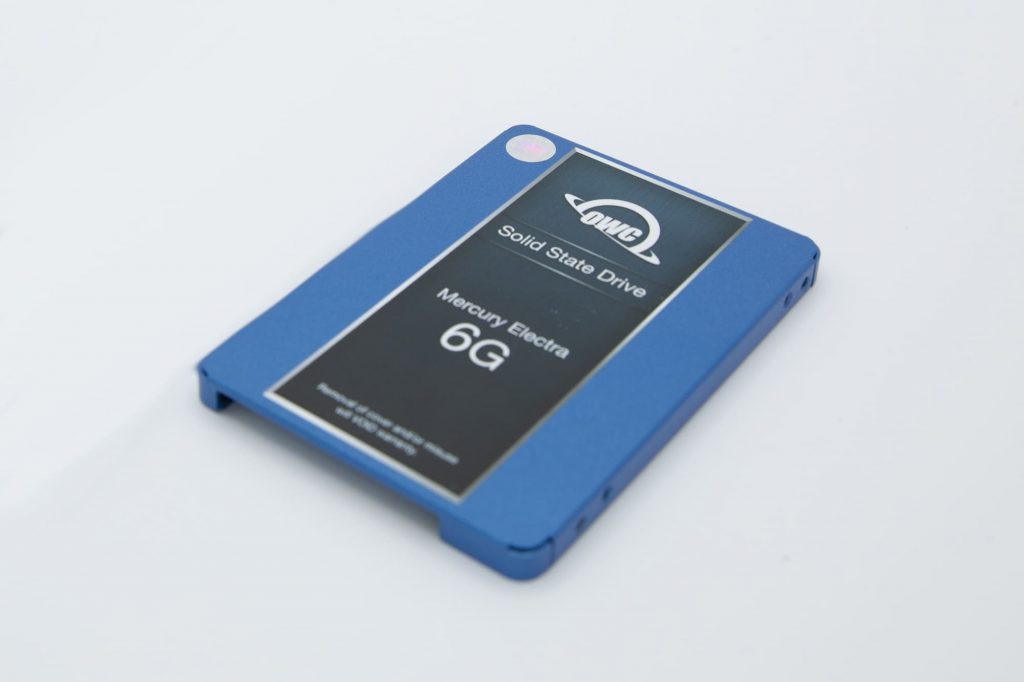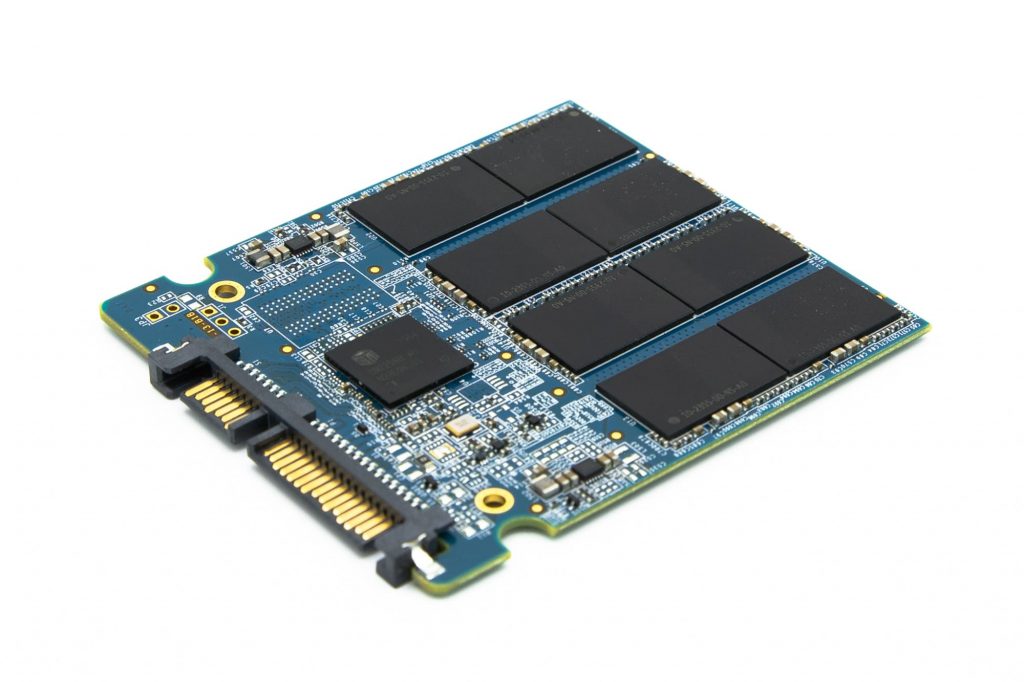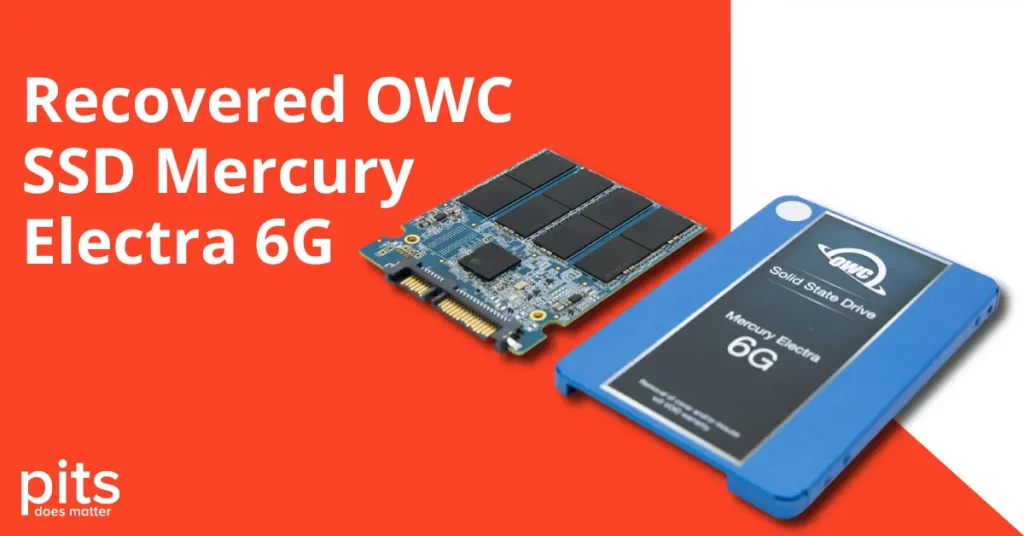Optimized Write-Cache (OWC) SSDs are the most advanced type of solid-state drive on the market. They offer faster read, write, and access speeds than traditional SSDs, allowing users to access data and programs more quickly. OWC SSDs have no moving parts, making them highly reliable for long-term storage. With faster speeds and improved reliability, OWC SSDs are becoming increasingly popular for computers, tablets, and other electronic devices.
You do not have to worry about SSD mechanical components wearing out over time. It is because there is no moving arm that writes to a spinning disk like a traditional hard drive. It does not mean that SSD will not wear out. Capacitors degrade over time, the power supply may fail, and the controller chip may break. In this case, you will need a specialized data recovery company to restore all your files.
PITS Global Data Recovery Services provides reliable and advanced data restoration solutions for solid-state drives of all brands and models. All our recovery options are performed according to international standards.
OWC Mercury Electra SSD Data Loss
Our data recovery team recently received an OWC Mercury Electra solid-state drive for diagnostics. The drive was unable to initialize, and the customer complained that it was impossible to access the data that was on it. The media storage did not boot and remained inaccessible despite repeated attempts to enter on several host computers and with various cables.
The client experienced a variety of issues with the hard drive, including a “no bootable device” error, a Blue Screen of Death, and a read-only state. Despite this, the client continued to use the drive, which led to its eventual failure. Consequently, all of the data stored on it was lost. To prevent this type of data loss in the future, the client should consider investing in a high-quality OWC SSD Enclosure. This will protect their valuable data from any hard drive failure and keep it secure.

Our specialists found out that the problem was corrupted firmware. Diagnostics also revealed that the drive was previously unsealed and had scratches.
A local computer repair shop unsuccessfully tried to restore the customer’s data, which only resulted in a little dislodged NAND chip. The data recovery strategy for this particular case was to fix dislodged NAND chip, restore corrupted firmware and decrypt the self-encryption of the media storage device.
OWC Mercury SSD Recovery from Dislodged NAND Chip
Hard drive firmware allows the drive to appear, as a result, of the characteristics of the drive. When the media is booted, it accesses the firmware on the internal disks and the chips located on the printed circuit board before receiving a command from the computer. If the firmware is corrupted or damaged, the hard drive cannot work, which results in data loss.
Firstly, our data recovery engineer had to position the dislodged NAND chips on the SSD correctly. Then he decided to proceed with Factory Access Mode, which allowed him to process the client’s data.
A factory access mode is reading raw data from physical data blocks. The blocks are returned in raw file formats with information on encoding and ECC data correction. Without extracting the chips, this is the closest thing to chip-off.
Even if the media cryptographic key is not encrypted, the data cannot be decrypted in this mode. So our engineer had to decrypt extracted data after this process. The technician successfully switched to factory access mode by connecting the solid-state drive to a unique NAND reader.
Our specialist read the firmware and service areas to rebuild damaged tables and rewrite the microcode. After uploading the microcode, translation table, and system data to the SSD controller RAM, the specialists accessed the data.
Mercury Electra SSD Self-encryption Recovery
Self-Encrypting Drives or SEDs use hardware-based encryption to offer a more holistic approach to encrypting user data.
SED drives are equipped with an embedded AES crypto chip for full disk encryption before writing and decrypts it before reading directly from the NAND media.
Hardware encryption resides between the operating system installed on the drive and the system BIOS.

Our data recovery expert was able to recover data successfully through the use of an OWC SSD external drive. A bypassing bridge was utilized along with a USB bridge in order to decrypt all of the files, allowing for a full clone of the same model solid-state drive. This process enabled our technician to restore all of the important data that was previously inaccessible.
The customer reviewed the results via a remote session and approved them. We returned his data to him on a new SSD drive and successfully closed the case.
Benefits of Our OWC Mercury SSD Recovery Services

24/7 Emergency Service Availability

Risk-free Evaluation and Assessment

100% Customer Satisfaction Rate

Remote Customer File Verification

Over 50 Locations Across the US

Certified Data Recovery Services
Contact PITS Global Data Recovery Services to request our cutting-edge data restoration solutions. Our data recovery engineers will restore all your critical data in case of firmware failures and deliver them to you confidentially.
Frequently Asked Questions
What are the common reasons for data loss in an OWC SSD Mercury Electra 6G?
Data loss in an OWC SSD Mercury Electra 6G can occur due to various reasons, including accidental deletion, formatting errors, file system corruption, firmware issues, electrical problems, physical damage to the drive, or software conflicts.
How did your company restore data from the OWC SSD Mercury Electra 6G?
Our company employs advanced data recovery techniques and tools to restore data from the OWC SSD Mercury Electra 6G. This includes analyzing the drive’s firmware, repairing any logical or physical issues, using specialized hardware and software to access the data, and reconstructing damaged or lost files.
Can all data be recovered from an OWC SSD Mercury Electra 6G recovery case?
The recoverability of data from an OWC SSD Mercury Electra 6G recovery case depends on the specific circumstances and the extent of the data loss. While our company strives to recover as much data as possible, there may be cases where certain files or data fragments cannot be restored.
What should I do if I encounter a data loss situation with my OWC SSD Mercury Electra 6G?
If you experience data loss or inaccessibility with your OWC SSD Mercury Electra 6G, it is essential to stop using the drive immediately to prevent further damage. Contact our company, or a reputable data recovery service specializing in OWC SSDs, for a professional evaluation and guidance on the appropriate steps to take.
Can I attempt DIY data recovery for an OWC SSD Mercury Electra 6G?
DIY data recovery is not recommended for OWC SSD Mercury Electra 6G recovery cases. These SSDs use complex firmware and have unique characteristics that require specialized knowledge and tools for successful data recovery. Attempting DIY recovery without the necessary expertise may result in permanent data loss.
How can I prevent data loss in my OWC SSD Mercury Electra 6G in the future?
To minimize the risk of data loss in your OWC SSD Mercury Electra 6G, it is important to regularly back up your data to separate storage devices or cloud-based solutions. Ensure you have stable power supply conditions, use reliable surge protectors, and avoid physical mishandling of the drive. Keeping your firmware and software updated can also help prevent potential issues.
Is data recovery from an OWC SSD Mercury Electra 6G case expensive?
The cost of data recovery from an OWC SSD Mercury Electra 6G case depends on various factors, such as the severity of the data loss, the complexity of the recovery process, and the amount of data to be recovered. Our company provides detailed pricing information and options after evaluating the specific case.
